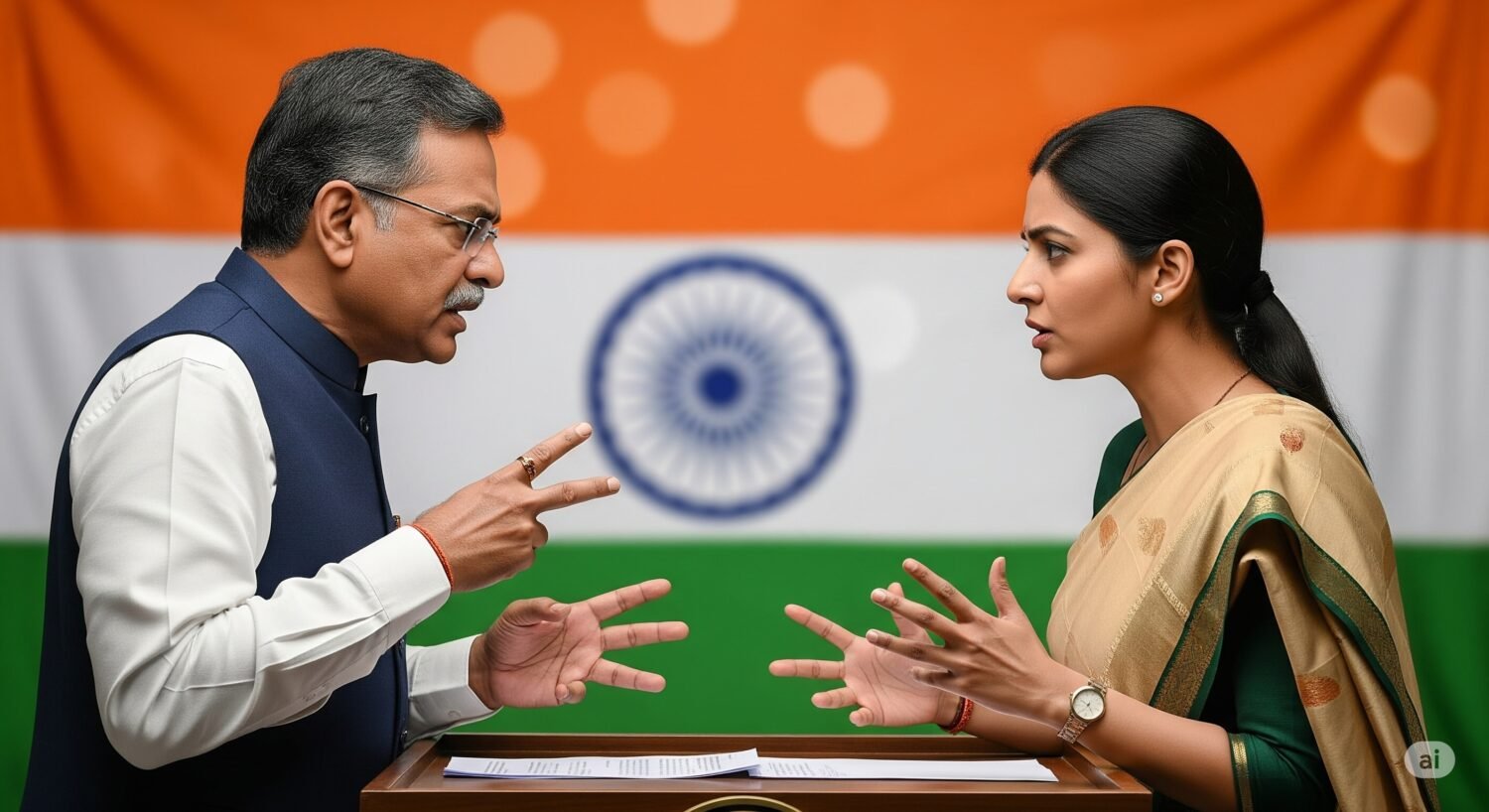Political Rhetoric Heats Up: Decoding the Recent Controversy


Explore the recent political storm in India as a BJP MP’s fiery response to an MNS chief’s Marathi remarks sparks widespread debate.
The Indian political landscape is no stranger to heated debates and sharp exchanges. Recently, the nation witnessed another such episode that quickly escalated, drawing attention to the often-charged nature of public discourse. This particular controversy involved a prominent BJP Member of Parliament and the chief of a regional party, whose remarks ignited a fresh round of discussions on regional identity and political boundaries.
The Spark: A Call for Marathi Pride
The genesis of this recent political kerfuffle lay in a statement made by a regional party chief. He reportedly urged his party workers to take strong action against those who did not speak Marathi, albeit with a caveat to avoid recording such incidents. This call, intended to champion Marathi linguistic pride, inadvertently set the stage for a fiery retort.
The Counter-Punch: A Daring Challenge
In a swift and unsparing response, a BJP MP, without directly naming the regional leader, issued a bold challenge. His words, “Tumko patak patak ke maarenge” (you will be thrashed badly, again and again), resonated across news channels and social media, signalling a no-holds-barred approach to the unfolding debate. This direct confrontation underscored the intensity of the political rivalry and the willingness of leaders to engage in robust verbal sparring.
Beyond Language: The Underlying Politics
The controversy, while seemingly centered on language, quickly revealed deeper political undercurrents. The BJP MP further criticized the regional party’s leadership, accusing them of engaging in “cheap politics” particularly with an eye on upcoming local elections. He also questioned their financial reliance, stating they were “surviving on our money.” This broadened the scope of the debate, moving it beyond linguistic identity to issues of political strategy and financial accountability.
A Challenge to Regional Boundaries
The BJP MP didn’t stop at a general rebuke. He specifically challenged the regional leader to extend his linguistic enforcement beyond Maharashtra’s borders, daring him to confront speakers of Urdu, Tamil, or Telugu. Furthermore, he issued a direct challenge to visit states like Bihar or Uttar Pradesh if he truly possessed courage. This move aimed to highlight the perceived hypocrisy or limited reach of the regional party’s stance, emphasizing a broader national perspective.
Reactions and Repercussions
As expected, the fiery exchange drew reactions from various political quarters. A leader from a rival party criticized the BJP MP’s remarks, questioning his self-appointed role as a “gatekeeper of Hindi” and whether the state’s Chief Minister endorsed such aggressive language. This highlights how quickly such controversies become a litmus test for alliances and leadership within the political spectrum.
This incident serves as a potent reminder of the dynamic and often volatile nature of Indian politics, where words can swiftly become weapons, and regional pride can easily intertwine with national narratives. The debate continues, leaving observers to ponder the long-term implications of such charged rhetoric on the nation’s social and political fabric.
Recent Posts
A Gang’s Chilling Warning to Bollywood after the Kapil Sharma Cafe Attack
A recent incident at actor-comedian Kapil Sharma’s cafe has sent a chilling message through the… Read More
Modi and Putin’s Crucial Talk: Strengthening Ties Amid Global Tensions
Narendra Modi and Russian President Vladimir Putin recently held an important conversation, reaffirming the strong… Read More
The Bull and Bear Tussle: How Trump’s Tariffs Are Shaking Up the Indian Stock Market
Indian stock markets are on edge after new US tariffs. Will the Nifty50 and Sensex… Read More
Hope Amidst the Uttarkashi Flash Floods: Families Await News
Anxious families in Uttarkashi wait for news after flash floods. Discover the ongoing rescue efforts… Read More
India’s Unwavering Pledge: Farmers’ Interests Paramount, Says PM Modi
The nation recently witnessed a strong and clear message from Prime Minister Narendra Modi regarding… Read More
Beyond Flavor: Unveiling the Healing Powers of Indian Spices
Indian cuisine is renowned worldwide for its vibrant flavors and aromatic spices. However, these culinary… Read More